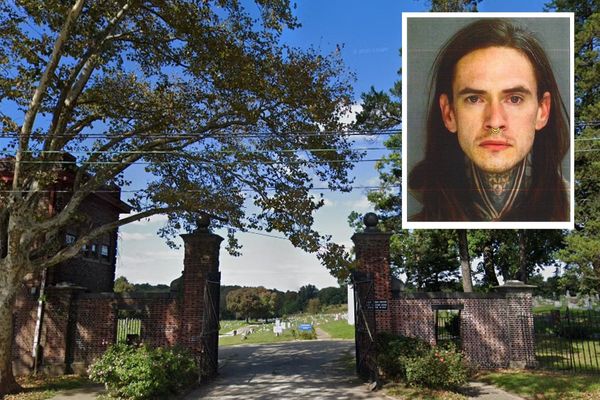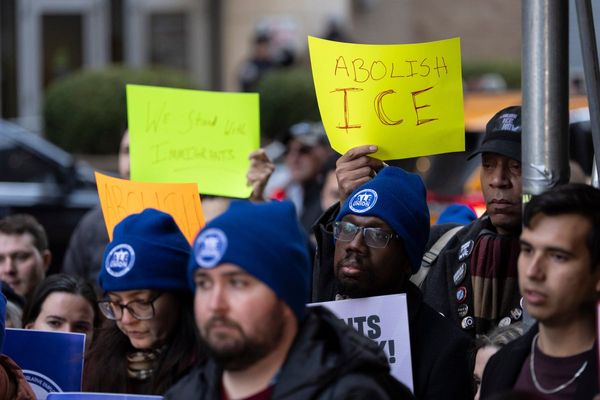
From a shopfront in Tilbury, Essex, community worker Yewande Kannike is wrestling with a paradox at the heart of this week’s English local elections: the most deprived people who could most benefit from political reform are least likely to vote.
Across England only about a third of voters are expected to cast a ballot in Thursday’s polls, based on previous turnouts. That could fall as low as 13% in the most deprived parts of places such as Middlesbrough and Hull. In Tilbury – once the gateway to Britain for the economic migrants on the Empire Windrush – eight out of 10 voters stayed at home at last year’s local elections.
Here, in the area run by Thurrock council, any sense town halls can solve problems with housing, social care, schools, work training, parks or children’s services was this year further weakened by a debt that hit £1.3bn, imperilling local services.
“Voting is not on their radar,” said Kannike, the chief executive of One Community Development Trust, a charity that helps people, particularly into employment. “Councils have been promising them things for years that never happen. You tell me to go and vote, for what? A broke council? No facilities? People go to the places that can help, like the food bank or us. There is no trust in the council.”
Tilbury remains a major container port with good connections to London and employers such as Amazon, which runs a vast distribution hub. But local wards include Tilbury St Chads, which ranks in the 10% most deprived neighbourhoods in England and across the borough four out of five voters stayed home last time around.
At the heart of the community is a site that is emblematic of the problems. What was once the local fire station, then a community centre, was approved for demolition three years ago to make way for a shiny new integrated health centre. But now the council project is deemed unaffordable and half an acre of rubble and rusting steel stares the residents in the face every day.
The current Conservative council leader, Andrew Jefferies, this week conceded to the BBC that voters “are angry with us”.
“I know nothing about voting,” said Abi Hales, 24, pushing her baby in a stroller along the high street on Tuesday. “I wouldn’t know what to vote for. We are trying to move out. It’s not very nice around here.”
Asked why she doesn’t vote, Jackie, a woman in her 60s dashing from the chemist, said: “Dunno. Just don’t. Whoever gets in gets in.”
Ibrahim Soliman, 59, said he might switch from Conservatives to Labour after struggling to get NHS treatment following a heart attack and stroke. It didn’t matter to him that councils don’t run NHS services, he was simply angry that “you’re lucky if you even get in the queue”.
New analysis by Locality, a membership group for community organisations in England, found the 20 wards with the lowest turnout at the last local elections have an average score of just over two out of 10 on the government’s index of multiple deprivation (in which one is the poorest) while the score for the 20 highest turnout wards was more than six out of 10.
The places with the lowest recent local election turnouts included parts of Hull, King’s Lynn, Middlesbrough, Thanet and Ashford, all of which were in the poorest 10% of places. The highest turnoutsincluded wards in Brighton, West Devon and Lewes – among the 30% least deprived areas.
Locality is calling for reforms to give community organisations the power to provide services such as youth clubs and social care.
“If you just rely on people to show up [at the polls] every four to five years, that’s not going to give you the real participation that you are looking for,” said Tony Armstrong, its chief executive.
Turnout in English local elections has not exceeded 40% since 2015, but it exceeded that benchmark four times in the previous decade, research shows.
“We keep talking about empowering people but we aren’t even using the power we have got,” said Mike Milen, the chief executive of Community Ventures, a charity in Middlesbrough. In his ward, Brambles and Thorntree, only 790 people voted at the last election – just 14% – “pitifully low”, he said.
“When we don’t vote we are complicit in things getting worse,” he added.
In recent years voters’ income, education and home ownership status have become stronger predictors of propensity to vote, said Ben Ansell, a professor of politics at Oxford University.
“In the 1970s and 1980s homeowners were only five percentage points more likely to vote in general elections than non-homeowners but since 2005 they have been about 25 percentage points more likely,” he said. “Politics feels very detached from most people’s lives. [At local elections] we are asking people to vote for candidates they haven’t heard of and policies they feel won’t change much. It’s only when you get policies like low traffic neighbourhoods that really rile people up that you get people out to vote.”







